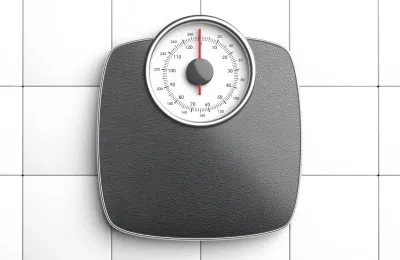Athletic Performance Through Holistic Recovery and Sleep Optimization
Chilipad Editorial Team • Sep 16, 2025

The Rest Factor: Episode 11 with Tim 'Red Hawk' Welch
You can also listen to the full podcast episode with Tim 'Red Hawk' Welch.
Key Takeaways
- Whole-Body Focus: Recovery isn’t just physical—mental and emotional health play a big role in performance.
- Sleep Priority: Quality rest is the foundation for muscle repair, energy restoration, and focus.
- Recovery Mix: Combining nutrition, hydration, active recovery, and stress management supports long-term success.
- Mind-Body Balance: Tools like mindfulness, relaxation techniques, and cooling sleep systems help athletes recharge fully.
- Sustainable Performance: A holistic recovery routine keeps athletes strong, resilient, and ready for consistent performance.
Athletic performance isn’t built in the gym alone, it’s built during recovery. More and more athletes are discovering that the real secret to peak performance lies in how well you recover, sleep, and live outside of competition hours.
Enter holistic recovery, a comprehensive approach blending sleep optimization, mental conditioning, and lifestyle upgrades to enhance performance, prevent injury, and promote long-term wellness.
In this episode of The Rest Factor podcast, former MMA fighter and elite coach Tim 'Red Hawk' Welch reveals how injury shifted his career and how holistic recovery, optimized sleep, and mental conditioning transformed his approach to training high-level athletes like UFC's Sean O'Malley.
Whether you're a high-performing pro or a weekend warrior, incorporating holistic recovery into your training can give you a competitive edge. From nutrition strategies to mental resilience and sleep science, let’s explore how this mind-body approach empowers athletes to perform their best.
Unlock Better Recovery with Chilipad
Optimize your sleep temperature to recharge faster and boost athletic performance—train hard, sleep cooler, and recover stronger with Chilipad.
Why Holistic Recovery is Key to Athletic Performance
Holistic recovery isn’t just a wellness buzzword; it’s a performance strategy. It integrates physical rest, emotional recovery, personalized nutrition, and mindful living to help athletes return to training better than ever. Unlike quick-fix methods, holistic recovery focuses on long-term benefits.
What is Holistic Recovery for Athletes?
Holistic recovery means treating the athlete, not just the injury. It includes everything from mobility routines to mental health - in short, complete care. Combining modalities like active recovery, cognitive training, sleep regulation, and anti-inflammatory nutrition makes sure every system in the body is functioning optimally.
How Does Holistic Recovery Improve Performance?
- Decreases injury risk by promoting proper rest and flexibility
- Enhances mental clarity and emotional regulation
- Supports faster muscle regeneration
- Boosts hormonal balance critical for gains, endurance, and resilience
Secondary keyword tie-ins like athlete wellness and recovery techniques for athletes highlight how this approach leads to better outcomes.
The Undeniable Role of Sleep in Peak Performance
Sleep is arguably the most powerful tool in an athlete’s recovery arsenal. Without deep rest, even the most advanced training protocols fall short.
How Sleep Affects Athletic Performance
Research shows that less than 60% of normal sleep for just one week can reduce testosterone by up to 50%. Growth hormone, which promotes muscle protein synthesis, is also released during deep sleep. REM sleep aids cognitive performance, tactical thinking, and emotional recovery.
Practical Sleep Optimization Hacks
- Consistent sleep-wake cycle—even on days off.
- Use red light in the morning and avoid blue light after sunset to balance circadian rhythms.
- Maintain room temperature between 60–67°F for optimal recovery.
- Try magnesium glycinate supplements (250–350mg) to improve sleep depth.
Incorporating these strategies can significantly boost how fast an athlete heals and how sharp they feel.
Active Recovery: Move Better to Recover Faster
Contrary to popular belief, recovery isn’t just lying in bed. Active recovery includes physical, neurological, and emotional resets that accelerate the body’s natural repair processes.
Examples of Active Recovery Techniques
- Breathwork & Meditation: Stimulates parasympathetic nervous system dominance
- Mobility & Dynamic Stretching: Reduces delayed Onset Muscle Soreness (DOMS)
- Cold Immersion Therapy: Cryotherapy chambers enhance blood flow and muscle regeneration
- Pneumatic Compression Sleeves: Promote faster removal of metabolic waste from muscles
Nutrition and Hydration: The Foundation of Recovery
Food is fuel but for athletes, it's also medicine. Nutrition and hydration impact not just energy levels but hormone production, inflammation, and recovery speed.
Core Guidelines for Athlete Nutrition
- Invest in a high-quality protein shake for muscle recovery within 30 minutes of training
- Incorporate anti-inflammatory foods: omega-3 fatty acids from fish oil, turmeric, leafy greens
- Eliminate refined sugars and processed foods that increase inflammation
- Hydration strategies: Aim for 70–100 oz water daily depending on training intensity
Are Supplements Effective for Recovery?
Yes, when used strategically. Key examples include: Creatine Monohydrate: Supports ATP regeneration. Start with 10g/day for two weeks, then 5g daily. Magnesium: Aids sleep, muscle function, and hormonal health. Aim for 250–350mg/day. Branched-Chain Amino Acids (BCAAs): Reduce muscle breakdown during intense workouts.
These dietary and supplementation strategies support both short-term performance and long-term health.
Mental Conditioning: The Game-Changer in High-Stakes
Physical skills get you in the door but mental resilience keeps you in the arena. Fighters, runners, and team athletes all benefit from psychological training.
What Are the Benefits of Mental Training in MMA and Other Sports?
- Boosts self-confidence and emotional regulation
- Rewires response to pressure and failure
- Enhances reaction time and cognitive function under fatigue
As Tim Welch shared on The Rest Factor Podcast,
quote Being able to be in the present moment and focus on your technique, focus on your breathing, focus on the things you can control, that is a real superpower."
Athletes can build mental toughness with techniques like:
- Visualization: Doing mental walkthroughs of the game plan lowers pre-competition anxiety
- Digital Detoxing: Reduces mental clutter and improves sleep quality
- Mindfulness Training: Keeps focus tethered to the present moment, reducing performance anxiety
Mental health in sports is more than therapy, it’s a proactive approach to performance enhancement.
Addressing Substance Use and Mental Health Holistically
Many athletes quietly battle mental health issues and substance use disorders (SUD). Holistic treatment programs provide an effective, stigma-free approach.
What Treatments Are Available for Athletes with SUD?
- Integrative Pain Management: Uses acupuncture, mobility training, and psychotherapy to reduce dependency on painkillers
- Dual Diagnosis Programs: Treat both mental health and substance misuse concurrently
- Aftercare Support: Community and peer-based support programs sustain sobriety and wellness long after initial treatment
This holistic support system not only helps athletes heal physically but reinforces emotional stability and life balance.
The Rise of Holistic Sports Medicine
Holistic sports medicine is shaping the future of athlete care. It considers more than the injury, it evaluates movement, mindset, and emotional health.
Who Can Benefit from Holistic Sports Medicine?
- Professional athletes facing chronic pain or burnout
- Weekend warriors seeking better recovery from intense training
- Youth athletes needing mental health support during development stages
Personalized protocols, lifestyle tracking, and recovery-focused programming are quickly replacing outdated, one-size-fits-all routines.
Creating Your Personalized Recovery Framework
Recovery isn’t about a single hack, it’s a lifestyle. Let’s create a sustainable approach that integrates all pillars.
Sample Daily Recovery Routine for Peak Athletic Performance
Morning:
- Red light therapy
- Hydration + mindfulness breathing
- Light yoga or dynamic stretching
Afternoon:
- Focused strength or skill training
- Post-workout protein shake
- Cold immersion or compression therapy
Evening:
- Low-carb, high-protein dinner
- Limit blue light and screen time
- Magnesium intake
- Journaling or guided meditation
Consistency across all areas - not extremes - is what fuels long-term results.
Final Thought
Optimizing athletic performance demands more than top-tier training. It requires a shift in mindset, understanding that the body thrives in recovery, not from constant stress.
When sleep, mindset, nutrition, and therapy come together in a holistic recovery plan, the results are profound: faster gains, fewer injuries, and sustained peak performance.
No matter what stage of your athletic journey you’re on, making recovery a priority sets you apart. Because in today’s competitive landscape, the best don’t just train harder, they recover smarter.
Want regular performance-enhancing tips and deep dives into athlete wellness? Subscribe to The Rest Factor Podcast and join the growing movement of athletes training for resilience, not just results.
The Rest Factor: Listen to Previous Episodes
You can also catch the full episode—and browse past Rest Factor podcasts—on your favorite podcast platform with just a click.









